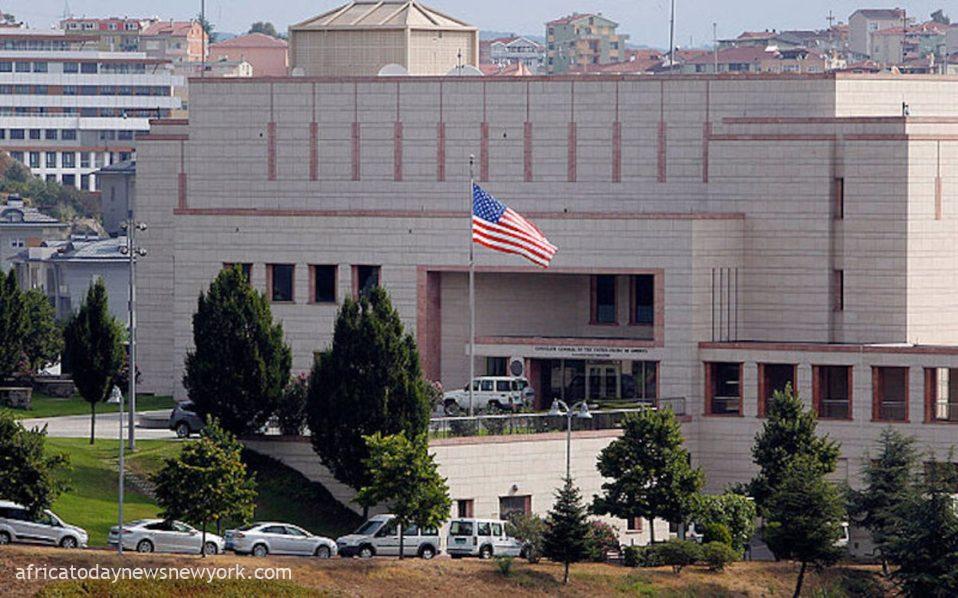The United States Embassy in Nigeria has revealed that it has limited ability to provide emergency services to American citizens in many parts of Nigeria due to insecurity calling on them to be alert.
This was contained in an updated travel advisory alert issued by the embassy on Monday, which it titled, “Reissued with updates to staffing and do not travel areas.”
The embassy said violent crimes, common across the country, was often targeting dual nationals who have returned to Nigeria.
“Violent crime – such as armed robbery, assault, carjacking, kidnapping, hostage taking, banditry, and rape – is common throughout the country. Kidnappings for ransom occur frequently, often targeting dual national citizens who have returned to Nigeria for a visit, as well as US citizens with perceived wealth. Kidnapping gangs have also stopped victims on interstate roads.
Read Also: Somalia Reopens UK Embassy 32 Years After
“Terrorists continue plotting and carrying out attacks in Nigeria. Terrorists may attack with little or no warning, targeting shopping centres, malls, markets, hotels, places of worship, restaurants, bars, schools, government installations, transportation hubs, and other places where crowds gather. Terrorists are known to work with local gangs to expand their reach.
“There is civil unrest and low-level armed militancy in parts of Southern Nigeria, especially in the Niger Delta region. Armed criminality, including kidnapping and maritime crime, is also pervasive in this region.
“Violence can flare up between communities of farmers and herders in rural areas. The US government has limited ability to provide emergency services to US citizens in many areas of Nigeria due to security conditions.”
The embassy, therefore, warned Americans in Nigeria not to travel to “Borno, Yobe, Kogi, and northern Adamawa states due to terrorism and kidnapping.
“Bauchi, Gombe, Kaduna, Kano, Katsina, and Zamfara states due to kidnapping
“Coastal areas of Akwa Ibom, Bayelsa, Cross River, Delta, and Rivers states (with the exception of Port Harcourt) due to crime, kidnapping, and maritime crime.”
